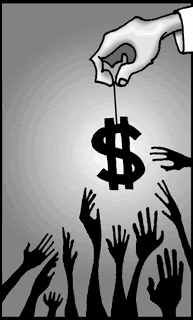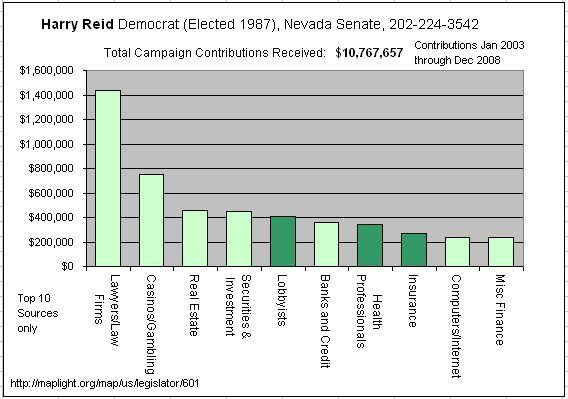(9:00AM EST – promoted by Nightprowlkitty)
Breaking Non-News Announcement!!! — Listen up consumers!
 |
Court Jesters
In societies where freedom of speech was not recognized as a right, the court jester — precisely because anything he said was by definition “a jest” and “the uttering of a fool” — could speak frankly on controversial issues in a way in which anyone else would have been severely punished for.
Monarchs understood the usefulness of having such a person at their side.
|
 |
Aristocrats
Aristocracy is a form of government, in which a select few such as the most wise, strong or contributing citizens rule, often starting as a system of cooption where a council of prominent citizens add leading soldiers, merchants, land owners, priests, or lawyers to their number. Aristocracy deforms when it becomes hereditary elite.
|
 |
Welcome to the Feudal Age
Before a lord could grant land (a fief) to someone, he had to make that person a vassal.
The lord’s principal obligation was to grant a fief, or its revenues, to the vassal; […] it was still the lord’s responsibility to maintain the land, while the vassal had the right to collect revenues generated from it. Another obligation that the lord had to fulfill was to protect the land and the vassal from harm.
The vassal’s principal obligation to the lord was to provide “aid,” or military service.
[…]
There were thus different ‘levels’ of lordship and vassalage. The King was a lord who loaned fiefs to aristocrats, who were his vassals.
|
 |
A Day in the life of a Lobbyist
First and foremost, lobbyists must be adept at the art of persuasion, which is the mainstay of their job. They must figure out how to sway politicians to vote on legislation in a way that favors the interest they represent.
[…]
The lobbyist imparts her information with the help of graphs, charts, polls, and reports that she has hunted up or created.
[…]
Sometimes, lobbyists will even sit down and help a politician draft legislation that is advantageous for their interest. Maintaining good relations with politicians who can be relied on to support the lobbyist’s interest is key.
While lobbyists and their employers cannot themselves make large campaign donations to politicians, they can, and do, raise money from other sources for reelection campaigns.
|
 |
The Joker’s Quid Pro Quo
QUID PRO QUO – Latin. ‘what for what’ or ‘something for something.’ The concept of getting something of value in return for giving something of value. For a contract to be binding, it usually must involve the exchange of something of value.
2008 Political Ads Worth $2.5+ Billion
TNS Media Intelligence estimates that between $2.5 billion and $2.7 billion were spent on political ads this election season. Television’s share was $2.2 billion.
|


|
The Jester’s Stage, aka The Spin room
A spin room is an area in which debate participants, their representatives, and/or other interested parties attempt to “spin” or influence the perception of a debate, usually among assembled reporters.
The spin room – oily engine of the political meat grinder
By Jerry Lanson – Dec 12, 2003 – csmonitor.com
The spin room. It’s a concept so integral to modern presidential politics that a friendly debate organizer outside the press room directs traffic. “Spin? That building,” she instructs, pointing toward a sign marked – yes – “Spin Center Media Entrance.”
[…]
“I’ve often wondered what goes into a hot dog,” wrote author William Zinsser. “Now I know and I wish I didn’t.”
His words resonate. Close up, what some refer to as the “pageantry of American politics” seems sweatier and slicker, a cross between a rugby scrum and a barnstorming sales pitch, with each candidate and handler trying to stay “on message,” and each reporter manipulating that message, pushing to get the right sound bite on the evening news or to flesh out that story “angle” for tomorrow’s paper.
|


|
The Fourth Estate
Noun 1. fourth estate – the press, including journalists, newspaper writers, photographers. A major social class or order of persons regarded collectively as part of the body politic of the country (especially in the United Kingdom) and formerly possessing distinct political rights.
Jefferson on the Freedom of the Press
“No experiment can be more interesting than that we are now trying, and which we trust will end in establishing the fact, that man may be governed by reason and truth. Our first object should therefore be, to leave open to him all the avenues to truth.
The most effectual hitherto found, is the freedom of the press. It is, therefore, the first shut up by those who fear the investigation of their actions.” — Thomas Jefferson to John Tyler, 1804
The Role of a Free Press in a Free Society — DailyKos: Jul 20, 2007 |
Attention! Breaking Non-News Announcement!!!
The following is an obligatory rant, from a concerned citizen, who still believes that America can, someday fulfill its true potential, as intended by the country’s founders.
Today we are besieged on all sides, by irresponsible “corporate persons”, and their irresponsible “Congressional Aristocrat enablers”. These vassals, and their well-connected special interests, ARE the crux of SO many real problems, that we face as Nation, and as a pseudo-Free People.
This elite class is far too willing to take the immediate short-term profits, granted by their status, all the while passing on the long-term, costs and consequences, of their irresponsible decisions, unto someone else, further down the line — the next CEO, the clueless shareholders, the naive Home-owner, the hopeful Pension-holder, the Canceled Cancer Patient; pass on their moral debt to Future generations.
Unto the next President. This happens, time and time, again.
If Corporations were truly “persons”, as they love to claim in court, and in politics — they would be shunned by society, as bullies, assholes, and criminals (even if only the “white collar” variety).
Of course, since our Corporate Media “persons” play the role of “Clown Jester” in the Noble’s courts, SO well, We as a society are given non-stop Breaking Michael Sarah News, in the daily town square, instead of serious discussions, about serious issues facing us, and the world.

One day those irresponsible “Corporate Citizens” will look back at all the damage they’ve caused, that they’ve enabled —
and they will ask: “What Happened?”
(maybe, that is assuming they ARE really more than mere Strawmen, and they really DO have a brain!)
That day, can not come soon enough!
The News Jokesters, are the “wild card” in our collective Futures — can these Corporate Persons rise above all the spin and the pompous jesting, and actually become “Good Corporate Citizens”, again?
Can the elite Aristocratic Class, learn to feel, learn to reach out, learn to invest, in something, other than their own Profits, for a change?
That is the question.
(… End of citizen rant — you will now be returned to your normal programming …)












14 comments
Skip to comment form
Author
welcome to the world stage.
Bravo.
Btw, how do you frame pics to the left/right of text like that?
Cheers
there is something wrong in this essay breaking the page!
rant. I liked it a lot. To answer your question I think good corporate citizens is an oxymoron. The corporation has by it’s nature a conflict of interest with the goals that make a good equitable society. There set up to make money and profit, period. In our present run amok economic system they are unhooked from the real market the one we all globally live in.
What happened is not something their capable of asking. Their what happened consists of eating each other and getting the ATM machine that we used to call the government to print up some more money and bail them out. Lehman Bros. CEO Fuld said ‘The system worked’ regarding the huge amounts of money the players make/made, while the companies they run destroy the economy. Their system does what is designed to.
These entities have no interest in the well being of either our country or the worlds. Their only rationale is making more money for the ownership class. They are too big to fall and they own the place, so I guess we have to wait until they have eaten everyone.
It seems a shame,’ the Walrus said,
‘To play them such a trick.
After we’ve brought them out so far,
And made them trot so quick!’
The Carpenter said nothing but
‘The butter’s spread too thick!’
‘I weep for you,’the Walrus said:
‘I deeply sympathize.’
With sobs and tears he sorted out
Those of the largest size,
Holding his pocket-handkerchief
Before his streaming eyes.
‘O Oysters,’ said the Carpenter,
‘You’ve had a pleasant run!
Shall we be trotting home again?’
But answer came there none —
And this was scarcely odd, because
They’d eaten every one